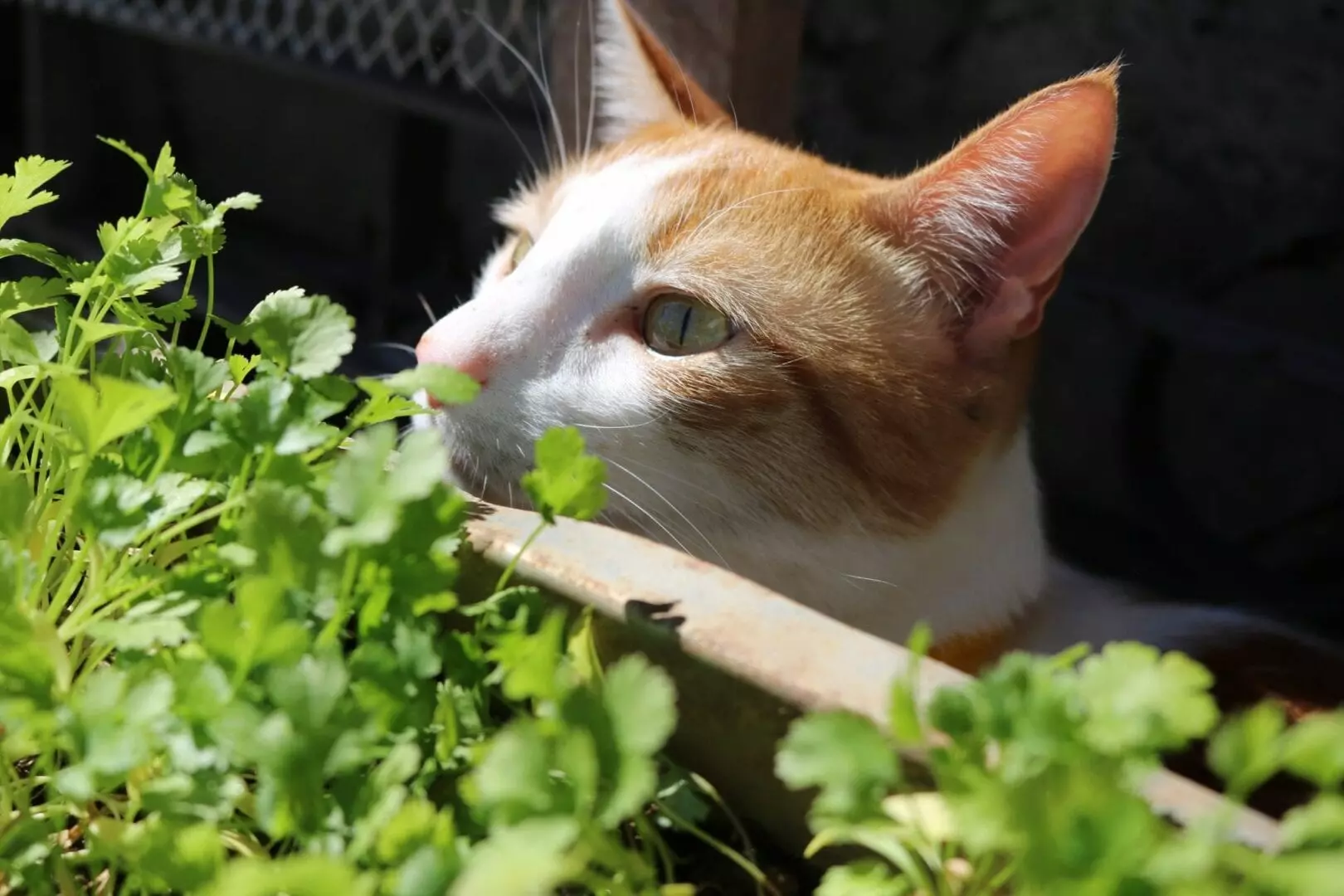Cats can be helpful little garden assistants when they’re chasing away pests and keeping you company. They can protect your vegetables from moles and rabbits, but they can sometimes do more harm than good. With their natural curiosity, cats have a habit of nibbling on plants, scratching at compost, and using prized flower beds as glorified litter boxes. They can also make themselves sick by ingesting toxic mulch. For these reasons, it’s best to keep kitty away from these areas of your yard. If you have a freedom-loving outside cat, however, this isn’t always easy. You’ll need to use a few tricks to keep cats out of your flower beds and gardens.
Here are a few things to try.
Cat-Repelling Plants
Some plants smell and taste irresistible to cats, but there are also quite a few that drive them away. It can sometimes depend on personal preference, but most felines despise the smell of lavender, sage, and rosemary. There is also the coleaus canina plant, nicknamed the “scaredy cat coleus.” This plant has a distinct skunk-like smell that cats typically don’t like. The problem is, you won’t like the smell, either. Making a kind of living border with these plants, or interspersing them within each flower bed, could help keep cats out.
Plant a Decoy Garden
While you let your cat-repelling plants flourish in your favorite flower beds, it’s also a good idea to plant a separate cat-friendly garden in a different area. Fill this garden with your cat’s favorite plants including catnip, cat thyme, oat grass, and mint. If all goes according to plan, your cat will love hanging out in this area and won’t feel the need to trespass into your other cultivated areas.
Citrus Peels
Besides living plants, there are other scents cats usually choose to avoid if they can. Citrus is one of them. For whatever reason, most felines hate the smell of oranges. You can use this to your advantage by placing orange peels along the border of your garden. This strategy will only work, however, for as long as the citrus scent lasts. You might also lose a few peels to birds or other critters.
Essential Oils
If you don’t want to plant rosemary or spread orange peels, you can try spraying concentrated scents from essential oils. Make sure you only use scents that are non-toxic to cats. Rosemary, citronella, and citrus are good ones to try. This can be an easy method to keep cats out of the garden, but essential oils aren’t waterproof. You’ll have to reapply your spray every time the area gets wet, either by the rain or your sprinkler/watering can.
Motion Sprinkler
If you have a particularly persistent cat, a motion-activated sprinkler system might be your best bet to keep them out of your garden. These sprinklers are designed to spray water every time they sense an animal’s heat or movement. Not only do they keep cats out, they’ll also protect your garden from other pests. It’s completely safe, but there is the risk that you’ll forget to turn it off and end up soaking wet when you go out to harvest or weed.
Garden Fencing
Most normal vertical fences won’t keep cats out of your garden. Our feline friends are skilled at climbing, jumping, and squeezing themselves through small gaps. Instead of constructing a vertical fence that most likely won’t work, place plastic garden fencing flat against the ground in between your plants. Cats don’t like the feeling of the fencing under their feet, and the protective covering will stop animals from digging in the dirt and using it as a litter box.
Read here for more tips on how to keep your cats out of your garden.
What NOT To Do
As frustrating as it can be to have a cat constantly invade your garden, you don’t want to use any deterrence strategies that will physically harm your pet. The goal is to keep cats out of the garden using humane and natural methods.
Chemical-based deterrents are obviously dangerous and can be toxic to cats and other animals. Mothballs are also toxic. Scat mats designed to deter pests and the homemade version using plastic forks are dangerous and can cause injuries.
To be on the safe side, don’t plant flowers, herbs, or vegetables that are toxic to animals. You’ll also want to make sure your mulch is non-toxic, just in case.






